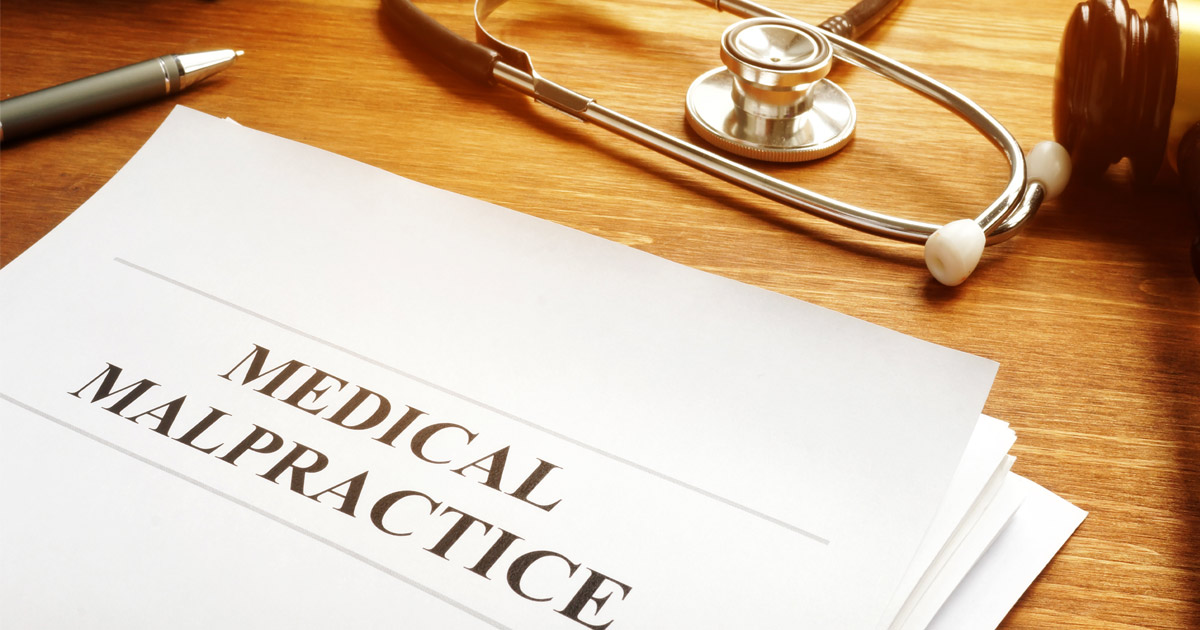If you or a loved one was injured or suffered a severe health complication while under the care of a trusted healthcare professional, you may be entitled to financial compensation by filing a medical malpractice lawsuit. However, due to the nature of these cases and the fact that it can be challenging to prove negligence, winning a medical malpractice lawsuit can be difficult, mainly if you try to handle it on your own. To have the best chance of the outcome of a successful claim, it is recommended that you contact an experienced medical malpractice lawyer.
What Makes Medical Malpractice Cases Difficult to Win?
Patients trust doctors and other healthcare professionals responsible for their care. However, despite years of education and medical training, doctors are human and capable of making mistakes. You can file a medical malpractice claim if a medical error causes serious injury. Keep in mind, however, that there is a range of challenges that can make the process more complex than other types of personal injury lawsuits, including the following:
- Complex legal issues: Medical malpractice cases often involve complicated medical terminology that is difficult for a non-medical professional to understand, mainly if the healthcare professional does not try to explain the events that led to the malpractice in an easily understandable way.
- Proving negligence can be difficult: Just because a medical professional made a mistake does not necessarily mean that negligence was a factor. To prove negligence, you must be able to prove the following:
- A doctor-patient relationship existed. This is generally easy to prove by obtaining copies of your medical records.
- Your physician owed you a duty of care. This means that your healthcare provider is responsible for providing you with the level of care that meets the standard accepted in the medical community.
- The physician violated the duty of care. If the healthcare provider fails to uphold their obligations, the duty of care is breached.
- The breach of care caused your injury. This can be proven by obtaining copies of your medical records and expert testimony. You cannot file a medical malpractice lawsuit if you did not suffer an injury.
- You suffered financial damages as a result of the injury. Damages may include medical expenses, lost wages, and pain and suffering.
- It can be challenging to differentiate symptoms: Often, healthcare providers will claim that symptoms are related to a pre-existing condition and not the result of medical malpractice. For example, if your healthcare provider fails to diagnose a health condition, causing you to develop a range of symptoms, it can be challenging to identify which symptoms are related to the misdiagnosis and which are caused by the initial health condition.
- You will likely need a medical expert: An expert medical witness is a highly skilled medical professional who can help establish whether negligence is a factor. The testimony will show whether the healthcare provider failed to meet the standard of care that a similarly-trained professional would have provided under the same circumstances.
How Do I Improve My Chances of a Successful Medical Malpractice Claim?
While the medical malpractice claims process can be challenging, there are steps you can take to increase the chances of the outcome of a successful claim and secure the financial compensation you deserve, including:
- Do not hesitate to contact a medical malpractice lawyer: There are several advantages to having a highly skilled medical malpractice lawyer on your side, including:
- Collect the evidence you will need, including medical records, how your healthcare provider breached the standard of care, the treatment you should have received, and any evidence of negligence in the healthcare provider’s past.
- Your lawyer can hire an expert witness who can explain how your healthcare provider breached the standard of care.
- Thoroughly explain your legal rights, discuss the financial compensation you are entitled to, and ensure you do not accept a low initial settlement offer.
- Address all of your questions and concerns throughout the claims process.
- Initiate the claims process as soon as possible: The claims process can take time, and the more complex the case is, the longer it will take to settle. Therefore, it is highly recommended that you file your claim as soon as you know that malpractice occurred. In Ohio, the statute of limitations for filing a medical malpractice lawsuit is one year from the date the malpractice occurred. If you file a lawsuit after the deadline has passed, you cannot recover any financial damages.
- Collect evidence: In addition to your medical records and a statement from a medical expert, keep a detailed account of how the injury has impacted your life and the challenges you have faced.
What Are Common Examples of Medical Malpractice?
A range of medical mistakes or other behaviors may be considered medical malpractice. The following are examples of medical negligence that would warrant a medical malpractice lawsuit:
- Diagnosis errors, including misdiagnosis, delayed diagnosis, or a failure to diagnose.
- Surgical errors, including performing surgery on the wrong body part, unnecessary surgeries, or leaving a surgical instrument inside the body.
- Misreading laboratory results.
- Administering an incorrect medication dosage.
- Failure to provide the necessary follow-up care.
- Failure to take or review the patient’s health history.
- Failure to order the appropriate tests or follow up on test results.
- Failure to identify symptoms.
Dayton Medical Malpractice Lawyers at Wright & Schulte LLC Assist Clients With the Claims Process
If you have been harmed by medical negligence, you are urged to contact our Dayton medical malpractice lawyers at Wright & Schulte LLC at your earliest convenience. Call us today at 937-222-7477 or contact us online to schedule a free consultation. Located in Dayton, Ohio, we serve clients in Cincinnati, Columbus, Cleveland, Centerville, Toledo, Youngstown, and Miamisburg.



